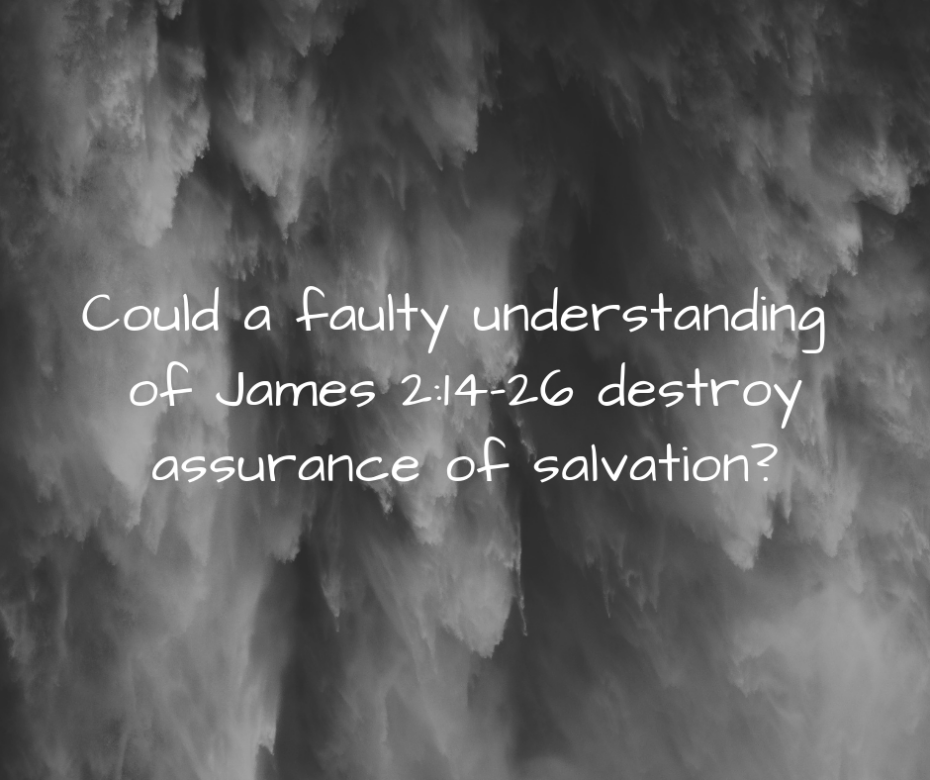I thought this was a good question about James 2:
Have you seen any articles/books expand on the fact that the traditional interpretation of James 2:14-26 (saving faith has works, and non-saving faith doesn’t have works) leads to legalism and lack of assurance of salvation?
Recently I read a Free Grace book (can’t remember which one) which mentioned this in passing, but I don’t think it expanded much on it.
If you know of anything, please let me know!! Thanks, bro!
For those unaware of the traditional interpretation of James 2, it basically says that “faith without works is dead” means faith without works is not faith. And the question, “Can faith save him?” is understood to mean that faith without works cannot eternally save anyone.
That way of viewing the passage is seriously flawed. Faith cannot be non-faith. No matter what faith is lacking, it remains faith. And justification is by faith alone, apart from works (John 6:28-29; Rom 4:4-5; Gal 2:16; Eph 2:8-9).
In a short blog I can’t go into details. For more discussion on Jas 2:14-26 you can look here for two short videos (10 and 7 minutes) by Zane Hodges, here for a journal article by me, and here for a blog by David Janssen.
How could this lead to lack of assurance of salvation? Once someone can bewitch us into believing that there are two kinds of faith, one that saves and one that does not, we can no longer have assurance based on faith alone. We will need works to verify that the type of faith we have is the type he needs. However, since the type of faith that saves perseveres in good works until death, we need lifelong good works in order to have assurance. That means that prior to death we cannot be sure we are born again because we can never be sure that we won’t fall away in the future.
How could this lead to legalism? If regeneration centers on good works, since faith without works is not really faith and faith without lifelong perseverance in good works will not save, then the stage is set for comparison. I know I’m more likely to make it to heaven if I’m better than most who call themselves Christians. So, I’ll try to find evidence that I’m better than others. Maybe I sing louder than everyone else. I’m at church more hours a week than others. Give more money. Witness more often. Pray longer prayers in public. Read more chapters of the Bible per week than the rest. Memorize more Scripture.
Legalism is judging spirituality based on numerical data not mandated in Scripture. We are never told to sing at or above a certain decibel, be in church so many hours a week, give a certain percentage of money, witness to so many people per week, pray public prayers that last for a certain number of minutes, read so many chapters of the Bible daily, or memorize so many verses per week. Those all are man-made measures.
While all those things are fine things to do, we should not compare with others and we should not measure our spirituality on how much we do those things either. See what Paul says in Gal 5:15 about legalism, “But if you bite and devour one another, beware lest you be consumed by one another.”
Assurance is found only in believing the promise of life, found in John 3:16 and over 100 verses in the Bible. It is not found in our imperfect works. That is a misreading of Jas 2:14-26 and other passages.
James 2:14-26 is often cited as a key passage proving Lordship Salvation. I think it is a powerful refutation of Lordship Salvation. But you can see what you think by studying the passage for yourself.


